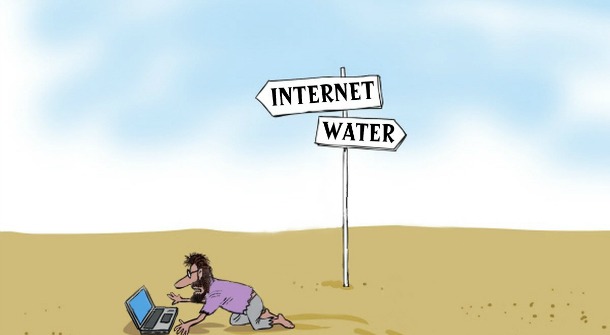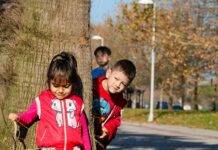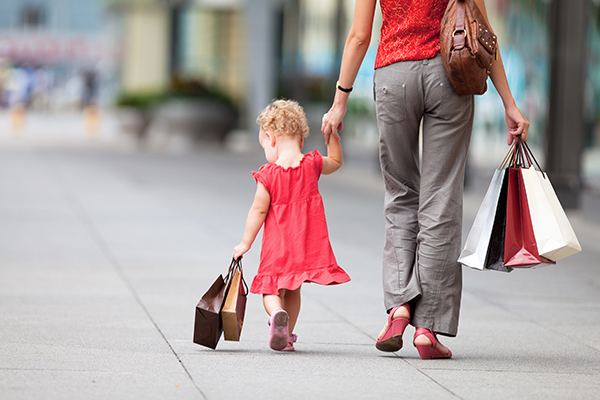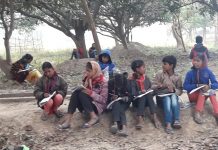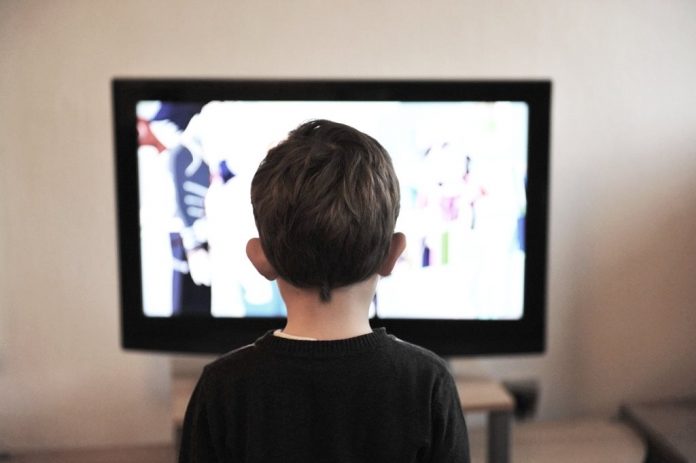
The first month
She is two. He is six. When the lockdown begins, it means nothing to either. The older one knows about corona though. He has heard from a friend about Italy and China. At lunchtime he airs his newly acquired information knowledgably – ‘You know, if you eat chicken, you will get corona. Aryan said it!’ (if Aryan has said it, this is uncontestable truth.) But it means nothing to him specifically. Children are small intense and passionate creatures who live for the moment. They know no other way. Without a concept of history beyond what happened a day ago, the pandemic, the virus and its scale meaningless. While adults rush and read all that they can about epidemics in the past, oddly comforted that this has occurred before, children chug on, unmindful of the chaos around.
All they know is that their parents are home and that the park is shut.
The first month is difficult. Routines, rules, guidelines and timelines dissolve. The familiar fades. We live with children, but we also fight them. Pack them off to school, to classes, fill their day with busy-ness, which suits us, and makes us feel better about their and ours imagined productivity. All that collapses. The lockdown made me confront my family, their emotions, their physicality, their energy in its full force. As a family, we probably have never seen so much of each other before.
It is illuminating.
I see the outlines of the children’s world more clearly. Nargis, who is two, wants to be told stories endlessly. She pulls out story book after story book, demanding each page be pored over. Prabuddh, older and slightly wiser at six, spends his time lounging around, reading and playing. On his first online class, his teacher enquires hopefully, ‘Are you missing school’? ‘Noooo!!’ the children chorus. If the teacher is disappointed, she doesn’t let it show.
As the lockdown settles in and the shock of being bound to one’s home wears away, the days take on a new routine. A late morning, a leisurely breakfast, plenty of drawing and colouring, and then on Skype with his other six year old friends. Their conversations are about the things which matter to them: drawings, crayons and toys. A stuffed animal’s birthday party is taken very seriously. But then conversations peter out. Without ‘real’ interactions of heads bent together over a drawing book or board games, or face to face conversations, the virtual world is hollow and dissatisfying, (as I learn myself after a grating department meeting). After a while, they weary of their toys too. With their parents around, available and accessible, one sees toys for what they are. Fillers for real people. Substitutes for real conversations. What matters intimate interactions, story telling and a lot of listening. And isn’t that what adults long for themselves too?
Yes, they miss the park. They miss their friends. They miss the slides and the see-saw. But they are oddly content with this new life.
The second month
The adult world swings dangerously between gloom, despair and anxiety. Mornings are spent in morbid talk – how many dead? How many infected? I am stricken: I stop the newspaper (it may be infected), there is panic in the air. My sister insists I stock up groceries for three months. She buys a deep freezer and fills it with food. We worry. Will food supplies be interrupted? What if there are riots? A friend confides that she has not even stepped out in her balcony.
I doubt it if the children notice this new state of affairs very much. They are busy. The beds are to be lolled in. The ceiling to be stared at. Long baths to be had. Contrary to what most people believe, kids are thrilled with the lockdown. No school! It makes one feel almost guilty for dragging the out of bed every morning at 6: 30 am. Now that I am at home and not worried about leaving on time, or preparing for work, the intensity of their world becomes more apparent. For a child, everything is about here and now. It doesn’t matter what you said yesterday, or how you said it, the tone you used or the words you chose. The sun is shining and their family is around. And that is enough for them. This is the depth of a little child’s heart.
Meanwhile, on a ‘mother’s whatsapp groups, a message circulates: your kids are the real heroes! Look how accommodating they are, the ease with which they have accepted this with grace is remarkable. It is the familiar new-age parenting, one marked with an egoistic celebration of children. I think to myself of strain and duress far worse than this. Of war and famine. Being locked up at home doesn’t seem half as traumatic as that.
My suspicion is that most parents want to be told that they are the real heroes. As parents wash dishes, do the floors and cook and clean, feed mouths and wipe bottoms, as feminists declare that this is the moment of recognizing domestic work, men exchange notes on the best strategy to do dishes (soak them in water for half an hour is one wise suggestion), I realize that is this as fundamental and primitive as parenting gets. The inability to escape from one’s child! And facing the full weight of taking care of a child, without outsourcing it to maids and playschools.
I fight it still. I wake up early to do yoga, to find a rare moment of silence and solitude. The YouTube teacher speaks: be in the moment, immerse yourself in the present. But how can I? There are meals to be made, clothes to be washed and groceries to be organized. In stark contrast, are children. Their silent faith and confidence is both frightening and reassuring. They glide through the crisis. As long as their home is intact, their family around, the world is perfect. It is finite and complete. The contours of their little world become visible to me. It is not small or big but it is complete.
The third month
This is not to romanticize parenthood: it is hard. It is harder in a generation cautious about each step. An age of parenting where one reads endlessly about how to do it. Generations have grown up and parented, but now there is a palpable anxiety about how to ‘get it right’. Each step is to be measured. And then obsess about how each step taken appears to the child and more importantly, how it appears to the rest of the world.
Parks are places where children play. But it is also the ground where parents exchange these obsessed over notes. Which is the ‘best’ school? (because an ‘average’ school is just not good enough). Have you switched to organic vegetables yet? What is the going rate for a full time maid and how much can you get her to do in those hours? What is the best age to start a child on tennis? Parents talk and explain endlessly. Often righteously.
How a child is to be dropped off to the tennis class and back home in time for dinner and bed by 8 pm. Or how a child’s screen time is monitored to be not more than an hour. It is a world which is articulate about every emotion, nuance and moment. If it is not articulated, it is photographed and shared endlessly. On a Whatsapp group, a mother ‘shares’ a poem written by her child for an online competition. But it does not end there. The message continues breathlessly, shamelessly: please vote for her!
With more research findings that the virus spreads primarily from person to person, we venture out with the kids. Early mornings or late evenings, when the park across our home is empty, we step out. With a ball. Badminton racquets. And a determination to play. We watch the skies change colour, the moon rise and take in the heady fragrance of mogra. A parrot feather found in the grass is admired. Seeds are picked and examined. Amidst the strain and stress of untimely deaths and irrational suffering, beauty does surface. Occasionally and fleetingly for grown-ups. But more wholesomely for children.
Priya Naik teaches Political Science at Zakir Husain Delhi College, University of Delhi.


